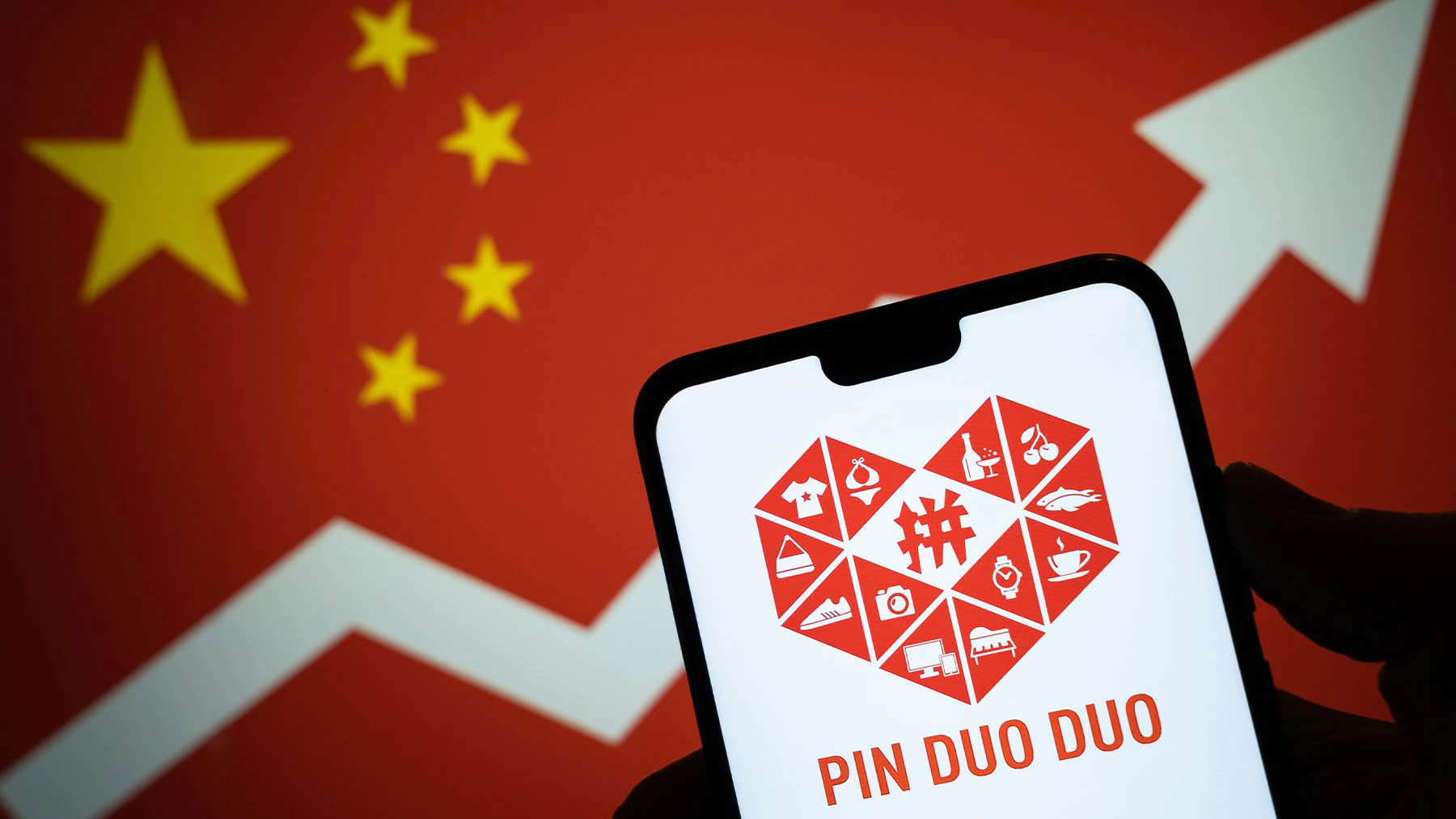
A new Chinese shopping app selling of-the-moment garments at rock bottom prices is shaking up the US fast fashion turf war.
Temu, a sister company to the Chinese online marketplace Pinduoduo, that sells everything from distressed denim to AirPod cases, has ranked in the top 10 most-downloaded shopping apps in Apple’s app store less than a month after its US launch, according to analytics firm Apptopia.
It’s a story familiar to both fashion insiders and consumers: a previously unknown retailer with close ties to Chinese garment manufacturers explodes onto the US market with a seemingly limitless selection and astonishingly low prices. Shein rode this formula to become the most downloaded fast fashion shopping app in the US in the first half of this year, and a host of other upstarts have found success mimicking aspects of that business model.
Like Shein, Temu is an appealing, even addictive platform connecting producers in China to consumers around the world. Pinduoduo sells far more than apparel, and while Temu appears to be more fashion focused, it also offers electronics and homewares. That could give customers a reason to linger beyond ordering an Instagram ready look.
Temu’s rapid rise is also a sign of how Shein has changed the fast fashion market. New retailers can make a big splash without first priming consumers with carefully plotted marketing campaigns, celebrity endorsements or promotions. At the same time, success is more ephemeral: there’s always another faster, cheaper seller looking to grab its slice of the market.
“Shein … has created an environment where consumers are prepped for these brands,” said Nora Kleinewillinghoefer, an associate partner in fashion, luxury and retail at consulting firm Kearney. “There is an incredible number of consumers willing to try it.”
Pinduoduo declined to provide a comment for this story.
To earn a permanent place in the US market, Temu has to build a loyal following among cost-conscious shoppers, who are being squeezed by high inflation and at the same time are quick to abandon a platform if their needs aren’t met. Success is not guaranteed: Wish, an online marketplace that sells a range of goods from merchants in China to US consumers at unbelievable discounts, built a strong stable of customers only to see its user base dwindle as shoppers lost faith in the quality of its service.
What Are Temu and Pinduoduo?
Temu is a US app created by Pinduoduo, a digital shopping behemoth in China. Alongside its chief rivals, JD.com and Alibaba, Pinduduo sells a mixed bag of goods at steep discounts. The company, which went public on the Nasdaq exchange in 2018, generated nearly $5 billion in revenue in its most recent quarter ending in June. Pinduoduo counted more than 700 million monthly active users in 2021.
Pinduoduo’s spin on retail allows “teams” of users to purchase goods at lower prices than they could as individuals. Merchants sell their wares directly to buyers, and the sellers bear the costs of shipping those goods.
Temu seeks to offer a more curated selection of products by hand picking which merchants’ goods will make it onto its site and storing those goods in a warehouse. When customers go to Temu’s site or app, they are greeted with vertical slideshows displaying items grouped by promotional categories, including a flash sale and items under $3.99, that visitors can click on to buy. The app does not offer the “team” buying feature that Pinduoduo does.
Items from Temu are shipped from international suppliers, mostly based in China, and can take a week or more to be delivered.
Who Are Temu’s Biggest Rivals?
Temu is the most serious threat to Shein’s dominance yet.
By tapping into Pinduoduo’s existing relationships with suppliers, Temu can add new items to its platform at a rapid clip. The company currently uploads thousands of items to the site daily. That’s been a key advantage for Shein, which was able to offer far more styles than fast fashion incumbents such as Zara or low-cost online retailers like Boohoo or Asos.
Temu also has one key asset most would be Shein rivals don’t: the backing of its massive parent. Pinduoduo’s market capitalisation is about $80 billion (Shein was valued at $100 billion after raising about $1 billion in April, according to media reports, though start-up valuations have fallen across the board since then).
Temu’s strategy walks the line of “if Shein can do this, so can we,” said Robin Zhu, a senior analyst focused on China-based internet companies at research firm AB Bernstein.
But Shein’s singular focus on selling clothing and accessories has allowed it to permeate social media with influencers creating engaging content such as the ever popular “Shein hauls,” where creators style a variety of outfits from large packages they’ve ordered from the retailer, Zhu said.
Temu will have to create content for the wider selection of product categories it offers, which could make it harder for the retailer to garner similar brand recognition, he added. It has a ways to go to match Shein’s cultural impact: Temu’s Instagram account has just over 1,000 followers; Shein is closing in on 26 million.
What Will Determine Whether Temu Succeeds?
Temu has seen early traction. Its app was downloaded on Google’s Android app store, Google Play, and Apple’s app store more than 400,000 times in September, according to Apptopia.
To be more than another fast fashion flash in the pan, it must give those early users a reason to come back, Kleinewillinghoefer of Kearney said.
That’s proven difficult, given that it can be hard to tell which of countless online fast fashion retailers made that $4 flowy dress or $6 graphic T-shirt.
Online marketplace Wish enjoyed enormous popularity in the late 2010s, and saw monthly active users rise 19 percent year-over-year to 107 million in 2020. But many Wish shoppers stopped using the site, frustrated by longer-than-expected shipping times and items that failed to live up to what merchants promised on the site. It reported 74 million active users last year. Shares sank after the company went public in late 2020, and currently trade below $1 on Nasdaq.
Since Temu selects which goods make it onto its site, instead of merely connecting buyers and sellers, it is better equipped to ensure the items it offers meet customers expectations, Bernstein’s Zhu said.
For its part, Temu has put a number of quality controls in place. For one, the company currently refunds customers for products that arrive later than originally promised, are damaged or appear different than their image on the site. Temu also prefers to work with merchants that have previous experience selling their wares to customers overseas.
“The responsibility is on them to make sure quality control is right,” Zhu said.



